Past Programs
Since 2003, TECPA has offered hundreds of important professional development opportunities to our audience of early childhood professionals, afterschool group leaders, early elementary teachers, family childcare providers, program administrators, and all who care about children and families. With each year we have invited thought leaders, researchers, and professionals from a variety of fields to share their work with us and allow us all to continue to grow in our professional careers.
Check out some of our most recent programs here:
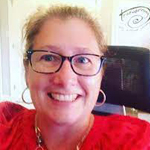 Developing Language, Creativity & Thinking:
Developing Language, Creativity & Thinking:
Beyond Open Ended Questions
Presented by Carrie Becker, Transforming Education
Teachers are tremendous models of language for their students. Each exchange is a chance to teach the serve-response of conversation and an opportunity to get a child to think deeper about a subject. How do your teaching practices support language development and creative thinking? During this workshop, you will learn the art of asking questions that support creativity and higher-level thinking.
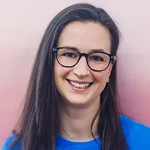
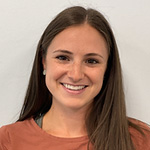 Early Childhood Development:
Early Childhood Development:
A Conversation with Occupational Therapists!
Presented by Liz Haggerty, MSOT, OTR &
Arielle Simons, MSOT, OTR
Two staff Occupational Therapists from Boston Ability Center in Natick will first provide an overview of neurodiversity affirming care and current best practices, then guide you through gross motor and fine motormilestones, indicators for an OT referral, and strategies, tips and tricks you can use in the classroom. We'll take a look at a few real-life activities as examples of both topic areas and give you a chance to ask questions.
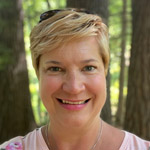 Can't We All Just Get Along?
Can't We All Just Get Along?
Workplace Communication & Conflict Resolution Skills
Presented by Tracy Cheney, Dr. Day Care Family
Conflict in the workplace is a bit inevitable, as employees have different personalities, goals, and opinions. All of those different perspectives are exactly what helps make teams work! Learning how to handle conflict efficiently is a necessary skill for everyone and this workshop will explore the five-step process behind conflict resolution. Participants will also explore how temperament and personality play significant roles in interactions and relationships in the workplace, as well as in our personal lives. By better understanding not only others, but ourselves, conflict will begin to decrease.
 The Nurtured Heart Approach
The Nurtured Heart Approach
Presented by Sam Healy, LICSW
Always a TECPA favorite, we are excited to welcome back Sam Healy to talk about The Nurtured Heart Approach. The Nurtured Heart Approach™ (NHA) is a social emotional curriculum developed for building relationships in which students are intrinsically motivated both academically and pro-socially. With this approach, teacher-student relationships evolve into a culture in which students become invested and engaged in the learning process. At its very core NHA creates intense positive relationships within the academic context. Through capturing and facilitating first-hand experiences of success within typical everyday routines and activities these relationships provide countless opportunities for social-emotional and character development.
 The Co-Teaching Playbook: Giving & Receiving Feedback
The Co-Teaching Playbook: Giving & Receiving Feedback
Presented by Carrie Becker, Transforming Education
Do you inwardly cringe when we think about giving or receiving ‘feedback’? Feedback provides recipients with insight or suggestions that contribute to desired outcomes. Effective feedback is supportive, encouraging, and specific. Learning how to receive feedback is just as important as giving feedback to continuing your personal growth. It is a skill that you can develop with practice. During this workshop, participants will practice giving and receiving effective feedback.
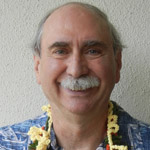 Moving from Discipline to Guidance
Moving from Discipline to Guidance
Presented by Dan Gartrell, Ph.D.
Conventional discipline tends to carry the baggage of punishment, pressuring teachers to be technicians rather than education professionals. Teachers who use guidance prevent many problems by using developmentally appropriate practice, positive communication skills, and building affirming relationships with children and families. They teach children to resolve problems, rather than punish children for having problems they cannot solve, and guide them toward skills that reduce and resolve classroom conflicts. This workshop uses anecdotes and video clips to explore key concepts and principles in the use of guidance.
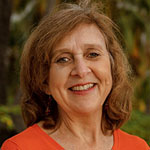 Using Visual Communication Aids to Support Behavior
Using Visual Communication Aids to Support Behavior
Presented by Linda Schumacher
Do you have children in your program who just don't seem to listen? That is a sign that the children are indeed listening, but not processing or responding to what you say. Providing visual communication, or pictures, to an early childhood environment can assist children in understanding what is expected for behavior and routines. In this workshop, we will look at many ways to use visual communication aids to support positive behavior in young children.
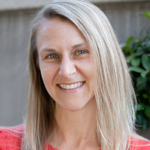 Sensory Processing & Behavior: Applying Concepts in a Classroom Setting
Sensory Processing & Behavior: Applying Concepts in a Classroom Setting
Presented by Dr. Jaamie Chaves, OTD, OTR/L, SWC, Pediatric Occupational Therapist
Part One of this series (held in October 2021 through TECPA) discussed the eight sensory systems and how they influence regulation, development, and learning. In this second session, we will apply information about the sensory systems in order to enhance regulation, engagement, and brain integration in the classroom. We will explore strategies and tools that you can utilize with various sensory-based needs, as well as problem solve how to support students in your own classrooms. This information will be based off of the speaker’s books, The Why Behind Classroom Behaviors and Creating Sensory Smart Classrooms. You need NOT have attended Part One to get value from this session!
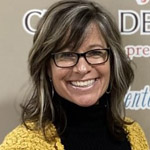 Practical Applications of the Reggio Approach in an Early Childhood Programm
Practical Applications of the Reggio Approach in an Early Childhood Programm
Presented by Susan "Miss Susie" Maiorello, M.Ed.
PIn this interactive session, we will explore key principles of the Reggio Emilia philosophy and how to practically implement this approach in an early childhood program. Participants will be asked to think about what their view of the child is and how this is reflected in their own classroom/environment. We will talk about what is meant by ‘The Hundred Languages’ of children and how the environment can be used as the ‘third teacher.’ Visuals of actual classrooms will show participants how they can make small changes within their own classrooms one step at a time.
 Autism Spectrum Disorder: Psychology, Education & New Directions
Autism Spectrum Disorder: Psychology, Education & New Directions
Presented by Joseph Moldover, Psy.D., ABPP/CN,
Clinical Psychologist & Board Certified Neuropsychologist
Autism Spectrum Disorder represents a wide range of educational and psychological needs, and a constant series of challenging decisions for parents and other caretakers. What can clinical psychology and neuroscience tell us about the basis of ASD? What are the options for supporting children with this diagnosis? How can an ASD diagnosis be framed with a therapeutic way for a child? In this presentation Dr. Moldover will discuss the characteristics of ASD, common questions and dilemmas for caretakers, and will take questions and engage in discussion with the audience.
 Understanding Weapons Play in Early Childhood
Understanding Weapons Play in Early Childhood
Presented by Samuel Broaden, HonoringChildhood.org
Weapons play has always been a “no!” for most of us in the field of Early Childhood. But why? Let’s spend some time diving into the benefits of weapons play, the idea of consent, the why behind our “no,” and how we can have this conversation with children and families who live in communities affected by violence.
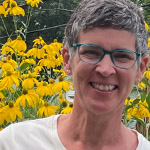 Gardening in Winter: Microgreens & the Super Power of Seeds
Gardening in Winter: Microgreens & the Super Power of Seeds
Presented by Dani Newland, Little Sprout Gardens, LLC
Winter can be bleak and few of us are gardening now – but we can be! Winter projects in the classroom set us up well for Spring when we move our efforts outside. In this session we will discuss introducing seeds and the plant life cycle in the classroom. We will cover all you need to know to present a fun, hands-on activity in your classroom with emphasis on tweaking language, materials and student involvement by developmental skill level. We will cover resources from books to seeds to soil. We will talk about shortening or lengthening a project, how to best prep and clean up, etc. We will wrap up with a look at a few more easy winter gardening projects to carry you to May. Attendees will be given a short supply list so they plant along with this session!
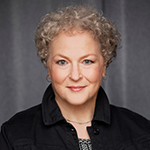 Relationships at the Heart: Empowering Relationship-Based Professionals in Early Care and Education
Relationships at the Heart: Empowering Relationship-Based Professionals in Early Care and Education
Presented by L. Carol Scott
As early educators, we are responsible for helping young children get along on the playground. We’ll take this opportunity to look at our own relationship skills and strategies. Do you play well with others—coworkers, parents, and others—on your adult playgrounds? Are you interdependent or codependent? Encouraging or pushy? Trusting or suspicious? A negotiator or a bully…or a doormat? This session brings you seven Self-Aware Success Strategies—your SASS—to strengthen your support for children’s interpersonal success and become a better role model for them.
 Do You Want to be the Bad Guy? Creating Peer Cultures Through Play
Do You Want to be the Bad Guy? Creating Peer Cultures Through Play
Presented by Ron Grady, M.S.Ed. Childology.co
In this workshop we explore the ways that children, in a nature-based preschool, used play to create and reinforce a "peer culture"–ways of being with and relating to one another–grounded in harmony, the process of co-creating a play world, and resolving conflicts. Using case examples, it invites educators to consider how to support children in exercising their own agency around forging peer relationships.
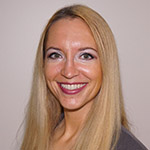 Motivating the Unmotivated Child
Motivating the Unmotivated Child
Presented by Amy Schlessman, PT, DPT, DHSc
This session provides educators with practical, creative activities to motivate and engage children and to provide effective praise. Strategies to enhance motivation will be provided along with many resources for developing a ‘participation tool kit’. Join us as we learn the difference between extrinsic and intrinsic motivation and learn new strategies to reach all learners.
 The Importance of Babbling: Fostering Language Development in Infants & Toddlers
The Importance of Babbling: Fostering Language Development in Infants & Toddlers
Presented by Carrie Becker, Transforming Education
Did you know that babbling is an important precursor to later language development? How can we support our youngest learners on their language journey? This workshop will give participants the tools they need to foster and support language development in their learning environments.
 Gender Expression in Early Childhood
Gender Expression in Early Childhood
Presented by Samuel Broaden, HonoringChildhood.org
Gender is a very important topic in our world-it is also important in our work with children. However, ideas surrounding gender, gender expression, gender expansive behavior, and more can be a difficult thing to understand for a lot of adults. Part of our practice must be to ensure that we are offering safe and supportive spaces for ALL children. Join me as we dive deep into this topic and discuss ideas such as gender terminology, what gender means (and does not mean), how to create supportive environments for ALL children, how to discuss this with families, and more! We will spend time in self-reflection examining our own biases towards gender and learn how we can unpack, unlearn, and reframe those biases in order to fully support the children and families in our programs.
 The Co-Teaching Playbook: Communication
The Co-Teaching Playbook: Communication
Presented by Carrie Becker, Transforming Education
Co-teaching in early childhood programs is different than the k-12 classroom. There are few resources available for this type of teaching relationship. In this workshop, we will focus on communication. This skill is essential to a solid co-teaching partnership. This session is part of a series where we will discuss how to navigate, build, and strengthen our co-teaching partnerships.
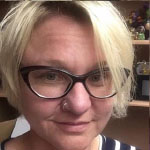 Quit Tattling on Children: Discussing Behavior with Parents
Quit Tattling on Children: Discussing Behavior with Parents
Presented by Heather Bernt-Santi, MA Ed.
How can we have conversations with families about behavior that build and strengthen the care partnership? Are the conversations necessary? What is our responsibility? Let's figure it out together.
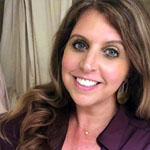 Is It All In Our Heads? How Our Thoughts Can Build Us Up or Keep Us Down
Is It All In Our Heads? How Our Thoughts Can Build Us Up or Keep Us Down
Presented by Dr. Ginger Welch
Are you stressed out, but frustrated when all of the best stress-relievers seem to cost too much money and take too much time? Do you sometimes get motivated to make changes in your self-care routine only to find that they aren’t sustainable? Come and join us for this two-hour workshop as we explore how our own thoughts and beliefs can hold us back or propel us towards better self-care. We will also discuss how to set self-care goals that are attainable. Come prepared to make a plan to take better care of yourself this school year.
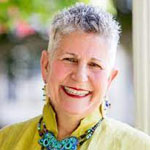 Radical Resilience
Radical Resilience
Presented by Holly Elissa Bruno, MA, JD
Resiliency, our capacity to bounce back from tragedy, loss, and/or failure, has become our core 21st century competency. Forces commanding us to "give up" or lose hope are also fierce. Let's help one another identify, refuel, treasure and celebrate our deepest "can do" resources.
 Growing a Child: The Importance of Nature-Based Play in Early Childhood
Growing a Child: The Importance of Nature-Based Play in Early Childhood
Presented by Nicole Urmston, M.Ed.
While most early childcare settings recognize the importance of getting children outside, all outdoor experiences are not created equal. Studies show that children’s ability to interact with nature improves their physical health, mental health, social interactions, and academic success. But while science is affirming the importance of nature in child development, children are experiencing it less and less. As a society we have grown more risk averse and impose restrictions and regulations on how children can play, stifling their imagination and creativity. The early childhood years are foundational and, as early childhood educators, we owe it to the children in our care to provide them with the access to nature that they deserve. This training will explore the benefits of nature-based learning and play for children and how you can bring it into your classroom, both easily and inexpensively!
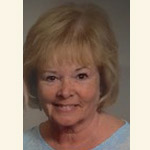 Make Way for Dramatic Play!
Make Way for Dramatic Play!
Presented by Kathleen Rudinsky
Join us as we turn our focus on Dramatic Play. Turn a corner into a castle or a wall into the wild west! Explore ways to expand dramatic play beyond the kitchen area. Incorporate your curriculum into the dramatic play space and you’ll be a believer of make believe! Come for some ideas you can begin to use right away in your classroom.
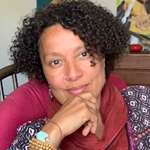 Mindfulness in the Early Childhood Classroom
Mindfulness in the Early Childhood Classroom
Presented by Deana Tavares & Maggie Sky, M.A.
This mindfulness workshop is not about your typical “belly breathing” techniques and animal yoga poses! Instead, you will learn integrated concepts that are drawn from ancient as well as present-day practices, weaving together somatic awareness, connection with nature, and exploration of the senses. As a result, you can redirect energy and ease tension within the classroom setting. Most of all, you create shared experiences with the children you work with, in which they benefit and so do you!
 • Discover how self-awareness and mindfulness can not only enhance the average day, but set a tone of positivity each and every day.
• Discover how self-awareness and mindfulness can not only enhance the average day, but set a tone of positivity each and every day.- • Learn easy to facilitate activities that introduce mindfulness to young children in engaging and exciting ways.
 Perfect Partners: Science & Literacy in Preschool
Perfect Partners: Science & Literacy in Preschool
Presented by Science is Elementary
Preschoolers are natural scientists. How can we harness their curiosity and playfulness to teach science? Why should we teach science in preschool? How can we integrate science and literacy? What is the big idea in science? This session will address all these and more. Join us for an interactive,
hands-on, workshop that will include experimentation, suggestions for science activities you can do in your classrooms, and ways to integrate science and literacy.
A not-for-profit based in California, Science is Elementary’s mission is to transform elementary science education for everyone by teaching students, training educators, and engaging the scientific community so that every child has access to exciting, high-quality science every day. Their professional development programs offer:
- • Customized content to each group of educators
- • Has strong literacy integration
- • Emphasizes scientific reasoning
- • Is taught by educators with advanced STEM degrees.
Join TECPA and Science is Elementary for this very special program just for afterschool educators!
 Elevating Afterschool Programs with Science
Elevating Afterschool Programs with Science
Presented by Science is Elementary
Play is science and science is play. What does that mean and how can we make science awesome in our afterschool programs? How do we make science relevant to children? How can we integrate science and storytelling? What is scientific thinking, and how can we help children develop it? Bring your enthusiasm, your curiosity, and your questions. This fun, interactive, workshop will include
hands-on experiments and an engineering challenge!
A not-for-profit based in California, Science is Elementary’s mission is to transform elementary science education for everyone by teaching students, training educators, and engaging the scientific community so that every child has access to exciting, high-quality science every day. Their professional development programs offer:
- • Customized content to each group of educators
- • Has strong literacy integration
- • Emphasizes scientific reasoning
- • Is taught by educators with advanced STEM degrees.
 Anxiety in Early Childhood, and in Parents
Anxiety in Early Childhood, and in Parents
Presented by Larry Cohen, PhD
Children—and parents—are increasingly anxious, and this has a big impact on their lives, their education, and their classrooms. This workshop will help educators and childcare professionals understand childhood anxiety and provide practical tools for helping children and parents (and themselves.) Join noted author, Dr. Larry Cohen, for this very special TECPA program.
 Discovering and Uncovering: Observation, Documentation, and Planning for Infants & Toddlers
Discovering and Uncovering: Observation, Documentation, and Planning for Infants & Toddlers
Presented by Carrie Becker, BA, M.Ed.
Watching and listening to young children with intentionality, curiosity and wonder allows a teacher to gain deeper insights into each child's interests and development. It is through the thoughtful practice of observation that we show value to the process of learning. In this workshop participants will learn how to observe, document learning, and create individualized learning opportunities for infants, toddlers, and twos.
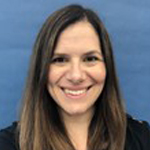 Teaching Self-Regulation Strategies & Using Effective Communication to Reduce Power Struggles
Teaching Self-Regulation Strategies & Using Effective Communication to Reduce Power Struggles
Presented by Shannon Ficher
Join us as we explore the importance of, and how to teach, self-regulation skills. Participants in this program will gain practical, hands-on methods to create inclusive environments that reach all children in their programs. And they will take back strategies that utilize effective communication and promote self-regulation in their students to reduce power struggles.
 Mindfulness and Self-Care Strategies: How to Find Balance in Mind and Body, as Well as in One's Life
Mindfulness and Self-Care Strategies: How to Find Balance in Mind and Body, as Well as in One's Life
Presented by Deana Tavares & Maggie Sky, M.A.
How do we find our calm place throughout the chaos of life? Is it possible to rewire our brains and adjust our routines to reduce stress, increase mindfulness, and enhance our own self-awareness?  How do we take back our time? This program will focus on:
How do we take back our time? This program will focus on:
- • Stress Reduction Strategies - techniques to release tension, feel calmer and less stressed
- • Mindfulness techniques to improve your self-care, create balance, be more focused and feel better about your frame of mind
- • Shifting from "human doing" to "human being" – how to shift how you engage in your world, including your work.
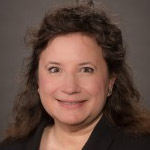 Neurological Disorders: Assisting Diverse Learners
Neurological Disorders: Assisting Diverse Learners
Presented by Dr. Maria Sargent, Ph.D., M.Ed.
This presentation provides an overview of the neurological processing disorders that cause students to struggle with understanding, play-based activities, and academic content. Problems to be examined include visual, sensory, and auditory disorders, as well as dysgraphia, dyscalculia, and reading disabilities. Dr. Sargent will provide exercises that will show how a child with these disorders views the world to assist in our understanding of these issues. Techniques to assist children, with or without these conditions, will be presented.
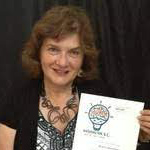 Time Management for ECE Professionals
Time Management for ECE Professionals
Presented by Tracy Cheney, M.Ed.
Do you find yourself running out of time? Often, it seems there are just not enough hours in the day to fit everything in. This workshop explores common mistakes regarding time management (including multi-tasking, procrastinating, not setting goals, etc.) as well as steps you can take to make improvements and finally "get the clock to work for you."
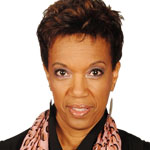 You're NOT My Friend: Understanding, Addressing, and Preventing Bullying
You're NOT My Friend: Understanding, Addressing, and Preventing Bullying
Presented by Cheryl Smith Turner, Ed.S, Reach TLS, LLC
Bullying behaviors can begin at an early age, disguised as targeted meanness, name-calling, teasing or various forms of aggression. When these behaviors are overlooked or dismissed, they can become habitual and damaging to the children involved, as well as those who observe the behaviors. This session will focus on understanding bullying behavior in order to recognize its signals, intervene quickly and teach children the social skills that will support healthy, respectful relationships.
 Sensory Processing: The Art of Understanding Behavior
Sensory Processing: The Art of Understanding Behavior
Presented by Jamie Chaves, OTD, OTR/L, SWC
Sensory Processing is foundational to how we learn about our bodies, engage with the environment, interact with others, make meaning out of activities, produce motor responses, and participate in learning. It also has direct links with our regulation and influences our behavior. Yet, deciphering Sensory Processing--and the 8 sensory systems that it includes--can be quite challenging. What does sensory processing actually involve? Why is it so vital for behavior responses, development, and learning? How can you better understand and influence the sensory processing needs of children, students, and ourselves? In our time together we will explore these questions and many more so you will be better equipped to recognize and refer when students need more support, provide accommodations and adaptations, and utilize another tool by which to view behavior!
 The Nurtured Heart Approach
The Nurtured Heart Approach
Presented by Sam Healy, LICSW
The return of one of our favorite speakers, TECPA is excited to welcome back Sam Healy, LICSW. The Nurtured Heart Approach™ (NHA) is a social emotional curriculum developed for building relationships in which students are intrinsically motivated both academically and pro-socially. With this approach, teacher-student relationships evolve into a culture in which students become invested and engaged in the learning process. At its very core NHA creates intense positive relationships within the academic context. Through capturing and facilitating first-hand experiences of success within typical everyday routines and activities these relationships provide countless opportunities for social emotional, and character development.
 Successfully Working with Challenging Behaviors
Successfully Working with Challenging Behaviors
Presented by Scott Noyes, Empowering Programs
Spoiled? Manipulative? Stubborn? Obstinate? Pushy? The program with these labels is that they imply that the children's behaviors are contemplated and intentional. We quickly find that the usual reward-and-punishment strategies do not work for these children. And working with challenging children can leave us feeling frustrated, overwhelmed, guilt-ridden, and exhausted. Sometimes we reach the point where we feel like the situation is hopeless. So, what do we do? This session looks closely at children with challenging behaviors and explains how to develop systems that help them, support you, assist their classmates, and empower their parents.
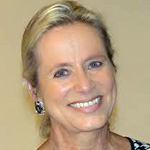 ASHI Pediatric CPR, AED & First Aid
ASHI Pediatric CPR, AED & First Aid
Presented by Juanita Allen Kingsley, W-EMT
American Safety & Health Institute (ASHI) Pediatric CPR, AED and First Aid training program provides an ideal training solution for schools, child care providers, youth sports coaches and others required to learn how to respond to medical emergencies involving children and infants. This versatile program is based upon the 2015 CPR and First Aid Guidelines. Participants will receive a 2-year certificate.
 The Power of Positivity!
The Power of Positivity!
Presented by Susan Macdonald, Inspiring New Perspectives
Positive thinking leads to positive outcomes! Positive strengths-based energy is essential for creating vibrant learning communities where children, families, and educators can thrive. This workshop is designed to support early childhood & school age educators as they begin to emerge from this period of stress and uncertainty due to the COVID-19 pandemic. This course will provide an understanding of the current positive psychology research to inspire participants. We will explore how these ten forms of positivity can re-energize your work: Joy - Gratitude - Serenity - Inspiration - Interest - Hope - Pride - Amusement - Awe - Love.The vital importance of modeling positivity in daily actions also be stressed.
 Illuminating the Magic & Wonder in Each Child
Illuminating the Magic & Wonder in Each Child
Presented by Susan Macdonald, Inspiring New Perspectives
Explore the powerful impact that seeing the best in each child can have! This course will focus on strategies for using the principles of Appreciative Inquiry to illuminate the strengths of each child. When children are seen for their strengths, they become more resilient and confident. Learning how to acknowledge and validate the child's unique gifts will help you to build a more positive learning environment where children can thrive.
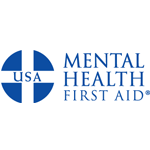 Youth Mental Health First Aid Training
Youth Mental Health First Aid Training
Presented by Nina Levine, LCSW, MPH Associate Project Coordinator Drug-Free Communities Grant & Certified YMHFA Trainer
Explore Youth Mental Health First aid teaches you how to identify, understand and respond to signs of mental illness and substance use disorders in youth. This training gives adults the skills they need to reach out and provide initial support to children and adolescents (ages 6-18) who may be developing a mental health or substance use problem and help connect them to the appropriate care.
What does the program cover?
- • Common signs of mental illness in this age group, including anxiety, depression, eating disorders, and attention deficit hyperactivity disorder (ADHD)
- • Common signs and symptoms of substance use
- • How to interact with a child or adolescent in crisis
- • How to connect the person with help
- • Expanded content on trauma, addiction, self-care, and the impact of social media and bullying
 Positive Discipline – That Works!
Positive Discipline – That Works!
Presented by Scott Noyes, Empowering Programs
Teaching children how to behave rather than reinforcing inappropriate choices is the focus of this entertaining and informative session. This talk includes:
- • why not to use punishment
- • humorous vignettes illustrating eight child management techniques
- • a discussion of the challenges in implementing the philosophy
An energetic workshop on helping children learn appropriate behavior.